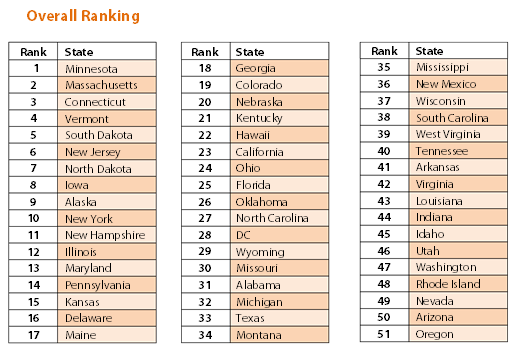So I am in Los Angeles solo this weekend for a training. It is always a bit daunting acclimating to the big city- the sights, the sounds…the traffic. A bit different from my small hometown in Oregon.
As I was driving my rental car down the 405 to the 101 to my hotel and navigating the LA freeways, I could not help but think of one of my all-time favorite SNL skits, “The Californians”. Sorry in advance if I offend any actual Californians out there, but I think it might be best that you start this post with a laugh, so please check the video out:
Funny, right? Most of the attendees at my training live close by here in LA and when I tell them I am from Oregon, they say what most people do in response, “oh, it is so beautiful there… so many trees…waterfalls…the coast…the mountains- you are so lucky!”
And while I would certainly agree Oregon’s beauty is hard to outmatch and I do consider myself fortunate for living here, today I want to talk about something not as pretty…mental illness in Oregon.
Did you know that Oregon ranks dead last when it comes to mental health care in the United States?

Mental Health in America reported Oregon to be dead last in an overall national ranking comparing need, access to care, and outcomes in each state. This was attributed to a high prevalence of mental illness and suicide, high rates of child maltreatment, homelessness, and low high school graduation rates. Interestingly, while ranked worst overall (51st) 48th overall for adult mental health, 49th overall for children, and worst (51st) for prevalence of mental illness, Oregon is in the top fifty percent for access to care and mental health services in the 21st spot. So while services could undoubtedly be more abundant, they are not so sparse, but needs are certainly not being met.
Do y’all remember Psych 101 and Abraham Maslow’s hierarchy? Remember the foundations that need to be present (food, warmth, rest, water, safety, & security) in order that a person may move towards self-actualization or in other words, vitality?

Let’s think about those foundations for a minute…Do you have these foundations in your life? Perhaps you have food, water, and warmth, but do you have rest? What about safety and security? Do feel safe in your relationship? Financially? At work? Do feel a threat of danger?
When a person is constantly seeking for these needs to be met, they are in survival mode. They are often in a state of hypervigilance, fight or flight, acute stress, and potentially, trauma. People can become desperate, act seemingly irrational and irresponsible, and may even resort to acts of violence or criminal behavior.
All actions may not be excusable, but I imagine in your most desperate moments, rationality, altruism, and being responsible was not on top of your priority list.
Think about homelessness, the abused child or spouse, new parents who are sleep deprived, poverty, discrimination, and financial woes. For many citizens of Oregon and beyond, the necessary foundations need yet to be fulfilled for true wellness and vitality to be possible at all.
Enter social justice.
Irregardless of how many medications, supplements, therapies, nutrition interventions, fitness tips, etc a person may be given, if they are hungry, cold, thirsty, sleep deprived, or in perpetual danger, true sustainable progress is very unlikely if not impossible until these needs are met with consistency and predictability.
Mental health and health in general begins with these basic foundations.
Maslow’s wisdom also demands we reevaluate expectations for one another. Should we expect the same academic standards from a child in the midst of family dysfunction or abuse as we do a child coming from a safe, supportive home? If you were to be homeless, hungry, and looking for shelter, would it be fair to expect you to simply, “go get a job”, when even the most basic of logistics can be daunting? What about the new mother who is struggling to keep afloat as she navigates the transition of motherhood? Do we expect her to be joyous or can we give her grace as she might also be grieving?
I think Maslow’s logic can apply to not just individuals, but families, social groups, and even nations that may be struggling in a cycle of poverty, violence, crime, and limited opportunity.
Oregon has a lot of work to do with restoring foundations to its citizens. This is not just the responsibility of politicians and it does little to play the blame game. It is in the end, our responsibility. Being advocates for social justice and simply being kind to another goes a long way.
If you have comments about the state of Oregon’s mental health, contributing factors, etc, please feel free to add to the story!
With peace & gratitude,
Audry Van Houweling, PMHNP-BC, Owner & Founder, She Soars Psychiatry, LLC